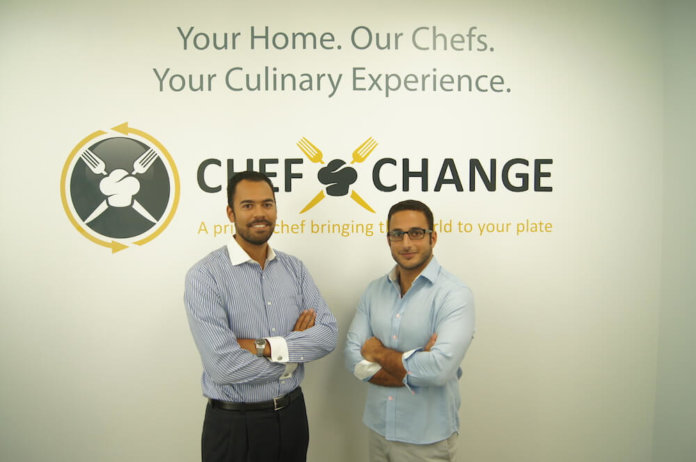
Interview with ChefXChange co-founder Karl Naim
Karl Naim and Marc Washington were veterans of the financial industry, working long banking hours, closing big deals, preparing PowerPoint presentations, and spending a fair amount of time traveling. Fast forward a couple of years, and today they are the co-founders of a culinary tech startup called ChefXChange, a peer-to-peer service that connects chefs and diners for a private culinary experience in the comfort of their home. In this exclusive interview with Tharawat, Karl Naim shares the journey of founding a tech startup and what it’s like to wake up every day with an entrepreneurial passion that drives him.
How did the idea for ChefXChange come about?
My co-founder Marc and I came up with the idea in early 2013 while I was hosting one of many dinner parties at my place. As I was hosting, I found myself stressing out with grocery shopping and preparation, and also ended up not spending enough time with my guests.
As we thought about how we could improve the dinner hosting process, we were inspired by our experience as hosts and guests in the Airbnb platform and thought why not replicate that same online marketplace model in the culinary world. After all, food is the number one medium that brings families and friends together. This grew into a vision to define the culinary experience of tomorrow through community engagement.
By 2014, Marc and I started working on a business plan, and ChefXChange officially launched in October of that year after graduating from DIGEATALL, the first ever Food & Tech Incubator. ChefXChange closed its seed round of $500,000 and we are now currently fundraising for our Series A that we aim to close before the end of 2015.
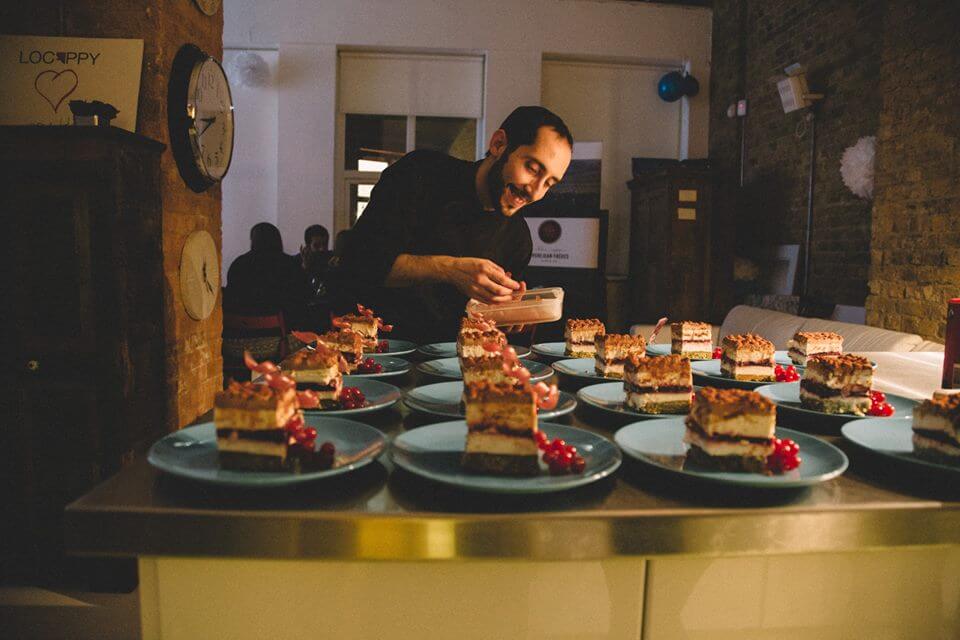
What is ChefXChange and how does it make money?
Our key message is “Your Home. Our Chefs. Your Culinary Experience” Simply put, ChefXChange is an online marketplace that connects chefs with foodies looking to host a culinary experience in the comfort of their homes or venues, hassle free. We hope that by bringing together our clients’ kitchens with talented chefs who bring their know-how and creativity, they can have a dining experience that is unique and not found anywhere else. Our mission is to democratize the culinary world, similar to what Uber did with private drivers and Airbnb with private homes.
The business model is fairly simple: Chefs and foodies sign up for free on the platform, and when a match is made, we charge a commission of 15% from the chef’s side on every booking. That way, the incentives are aligned – if a chef does well by building a good reputation and is highly sought after, we also do well.
ChefXchange currently operates in Dubai, London, Washington DC and soon Beirut, with 60% of the bookings coming from Dubai, and 20% each from London and Washington DC. At the time of our Beta launch in November 2014, we had 55 Chefs and 50 Foodies signed up. As of September 2015, we have over 300 Chefs and 610 Foodies.

Can you describe the process of booking a chef from start to finish with ChefXChange?
Let’s start with the customer, known as a “Foodie” on the platform. The Foodie signs up on the platform as they would on Facebook or Airbnb and creates their Foodie profile, which includes building a description of their kitchen by ticking pictures of the items they own. Once the profile is complete, they can “Find a Chef” based on cuisine, location and date, When they viewing a list of matches, the Foodie can check out the Chefs’ profiles and then contact them directly through an internal messaging system. After both parties agree on menu and pricing, the Chef pre-approves the booking request and the Foodie can then pay through our payment gateway provider using their credit card.
Now it’s time for the meal. The Chef shows up with the ingredients and utensils he may need, he cooks, he serves and cleans up the kitchen space. 24 hours after the event, both the Foodie and Chef receive a “leave a review” email where they can leave a comment about the event as well as the rating. This review is then made public on the Chef profile. At this point, we release the funds to the Chef’s bank account by wire transfer.
For the Chefs, the process for building their profile is more detailed because they need to input various information such as their cooking story, experience, training, favorite ingredients, specialties, menus, and pictures. We do not interfere in their pricing, but we do give them guidelines based on market trends.
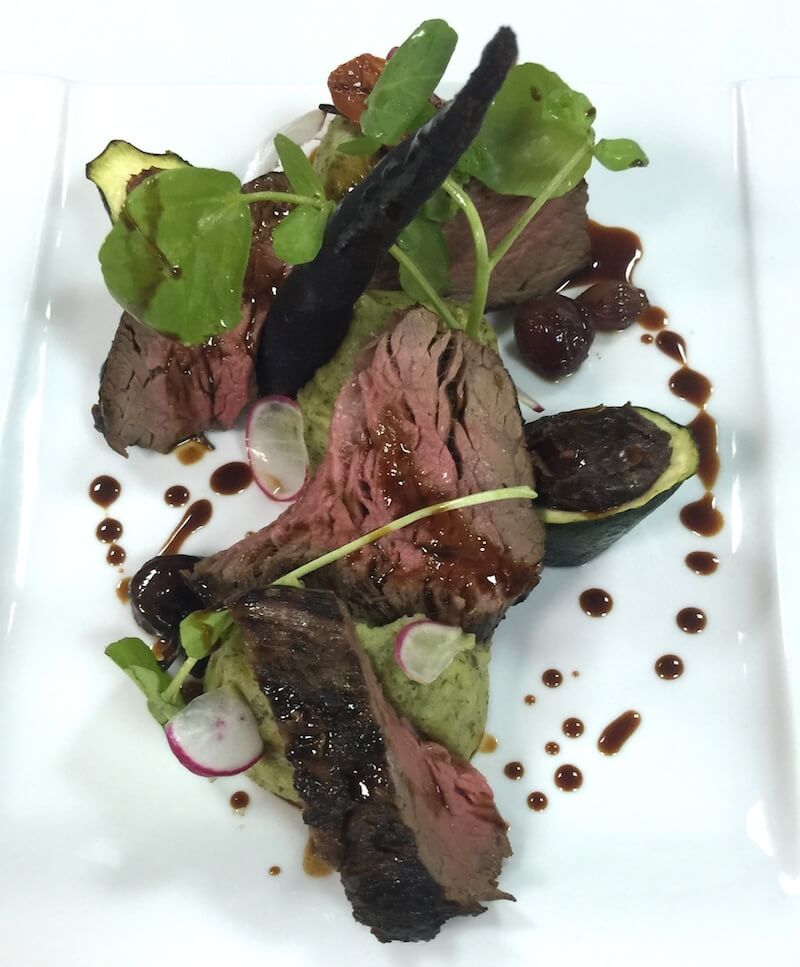
What is special about connecting diners and chefs directly? Why should people give ChefXChange a try over going out to eat?
ChefXChange provides a 4th alternative to the existing dining options, which are cooking at home, eating out, or ordering in. For the Foodie, we make the dining experience better, hassle free and exclusive, all at the click of a button. For the Chef, we become their storefront and place of creative expression, allowing them to increase their reach while giving them an outlet for extra income.
I will answer your second question by asking you, “Can you name one restaurant that you have been to where you had the chance to interact first hand with the Chef that cooked your food?”
What is ChefXChange bringing that is new to the culinary field?
The concept of a private chef isn’t new, but it was always reserved for the wealthy and influential people. As a peer-to-peer service, we are democratizing this status quo and trying to do what Uber did to the private car industry by becoming everyone’s private driver.
Additionally, an increasing number of Chefs are not necessarily looking to go through the hard labor required to work in a restaurant kitchen and pulling 16-hour days. They would rather freelance and set their own working hours, making our business model an attractive alternative.

What do you think it takes to achieve success in a fast moving and competitive field such as the tech industry?
Traditional marketing is dead and “growth hacking” is the new norm. In terms of marketing strategy, we go mostly digital with a large emphasis on social media where we spread our content, our identity, and our ChefXChange experience. On these platforms, we also share inspiring recipes, cooking tips, gourmet advice or even secret food places that we personally discover in town. The key is to maintain this warm presence both online and offline.
Our strength is being close to our community and offering our talented Chefs the opportunity to be as imaginative and creative as they want since they are not constrained by a restaurant menu. If both Foodies and Chefs share an amazing time through ChefXChange, they will want to repeat this culinary journey over and over again and share the experience with their friends and family.
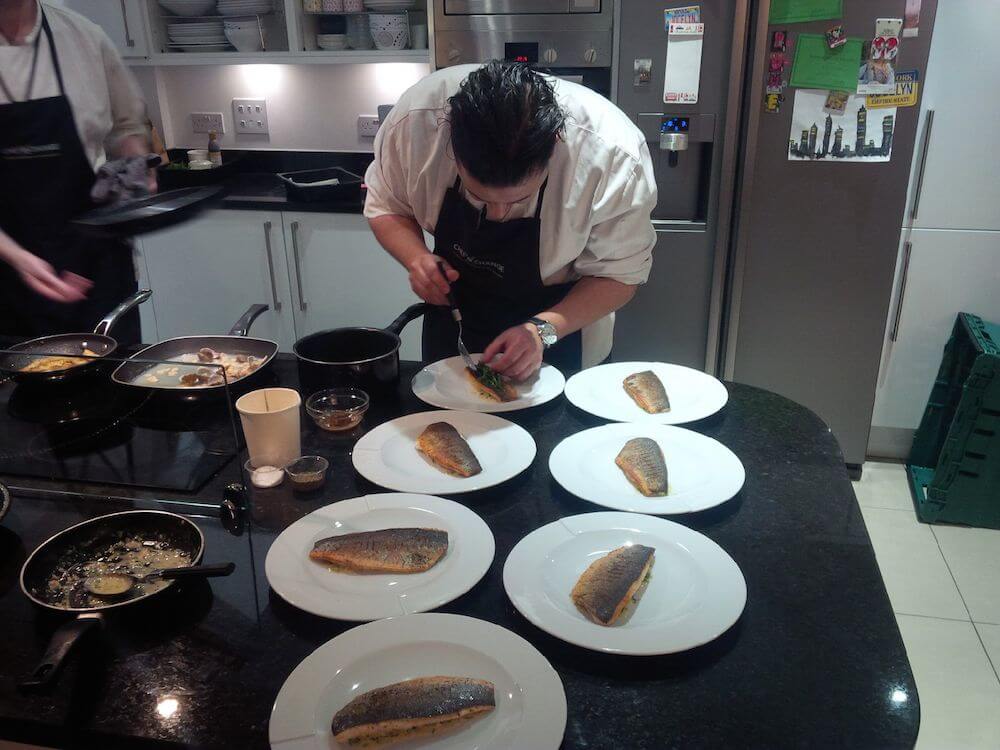
How was your experience of starting a tech startup such as ChefXChange?
Marc and I come from the finance industry, and as be are both armed with an MBA, we can confidently say we have very strong business minds. That being said, we did lack two major skill sets: marketing and technology. In the beginning, we had no choice but to bootstrap, both in terms of financing and manpower. We put a business plan together, did some focus groups, and learned on the go, asking our strong Alumni business school network for guidance when we hit roadblocks.
During the process, we ran into a number of technical issues with our product. However, we weren’t afraid of getting it out there to start getting feedback as soon as possible. A mistake that we all tend to make is being reluctant to release a product that is far from perfect. For us, we have released 3 versions of the site since the beta launch, constantly improving the functionalities based on our customers’ feedback.
Every day brings its share of lessons of do’s and don’ts and you learn these as you go. You have to dream big as an entrepreneur, but that doesn’t mean you should not advance one step at a time – don’t try to dance faster than the music. It is not a sprint but a marathon.
The value of HR, recruiting, surrounding yourself with talent are the biggest lessons I learned. There is only so much you can take on. Having a co-founder has been a blessing because it is someone you can rely on, but if you want to take the business further, you need to bring in key talent. You need to get hungry, driven, and passionate young people. At a company’s early stages, experience doesn’t matter – stamina does. We made the mistake of hiring senior people early on, but realized quickly they were not right at the stage of the company, but would have been good 5 years down the road.
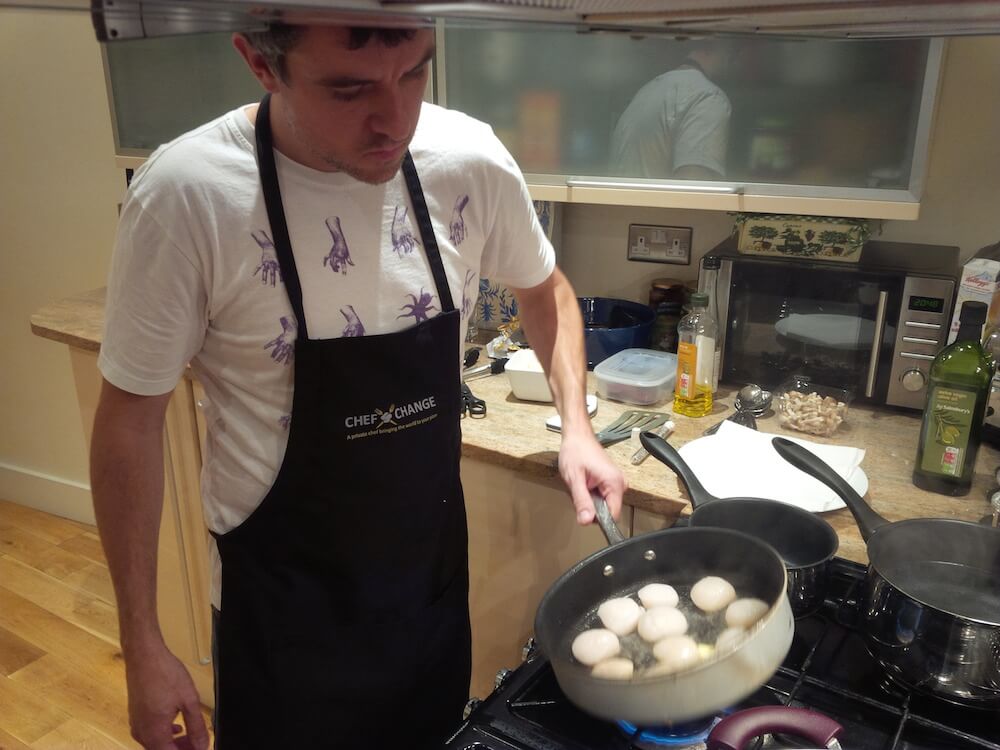
What advice do you have for other entrepreneurs and business leaders?
It would be presumptuous for me to give any advice as I am new in the entrepreneurship world but I can confidently say I have learned more in the past 2 years than I have in the last 10. Despite a successful corporate career in a ruthless banking industry, I can now say I haven’t been really challenged to step out of my comfort zone. Being an entrepreneur is not all rosy and glamorous, and each day brings its load of uncertainty and challenges, but this is what permits you to step out of your comfort zone and expand your circle of influence. If I were to pick 3 tips out of many I can think of, it would be:
Tip 1: Don’t waste time making assumptions – test them yesterday. Get out there as early as possible and tirelessly get consumer feedback early on to keep improving your product/service.
Tip 2: There always is something that is going to go wrong; this is your new norm. Don’t despair or waste your energy on things outside your circle of influence. Focus on where you want to be going, whether you like it or not it is going to be a bumpy ride.
Tip 3: Iterate, Iterate, Iterate. You will never get it right the first time, and there are no right and wrong answers. You are lean enough to try it all and adapt accordingly. If you don’t iterate, you will die a slow death.









